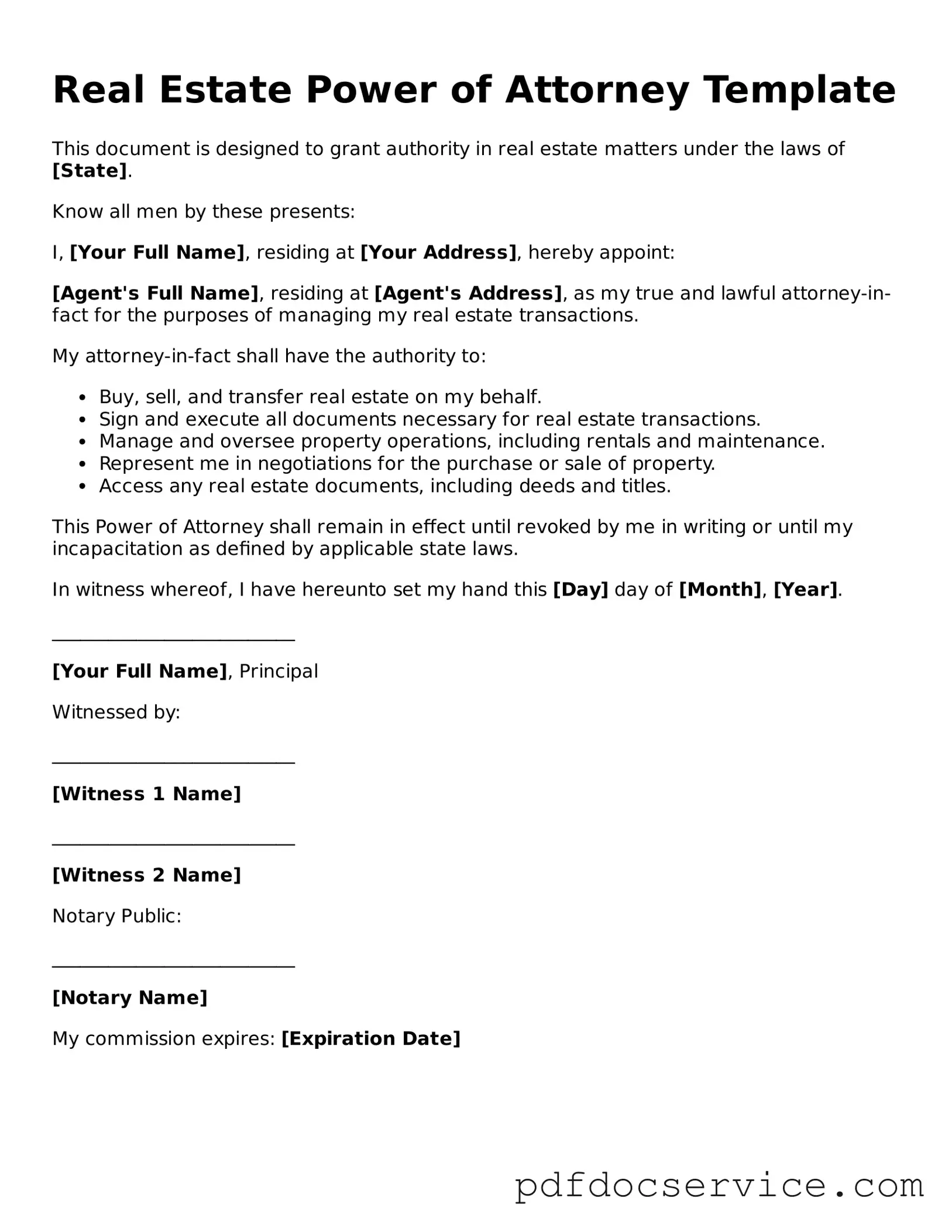Blank Real Estate Power of Attorney Form
A Real Estate Power of Attorney form is a legal document that grants an individual the authority to act on behalf of another person in real estate transactions. This form allows the appointed agent to make decisions regarding the buying, selling, or managing of property, ensuring that the principal's interests are represented. Understanding this form is essential for anyone looking to navigate real estate dealings smoothly and effectively.
Open Real Estate Power of Attorney Editor

Blank Real Estate Power of Attorney Form
Open Real Estate Power of Attorney Editor

Open Real Estate Power of Attorney Editor
or
Get Real Estate Power of Attorney PDF
Finish the form now and be done
Finish Real Estate Power of Attorney online using simple edit, save, and download steps.